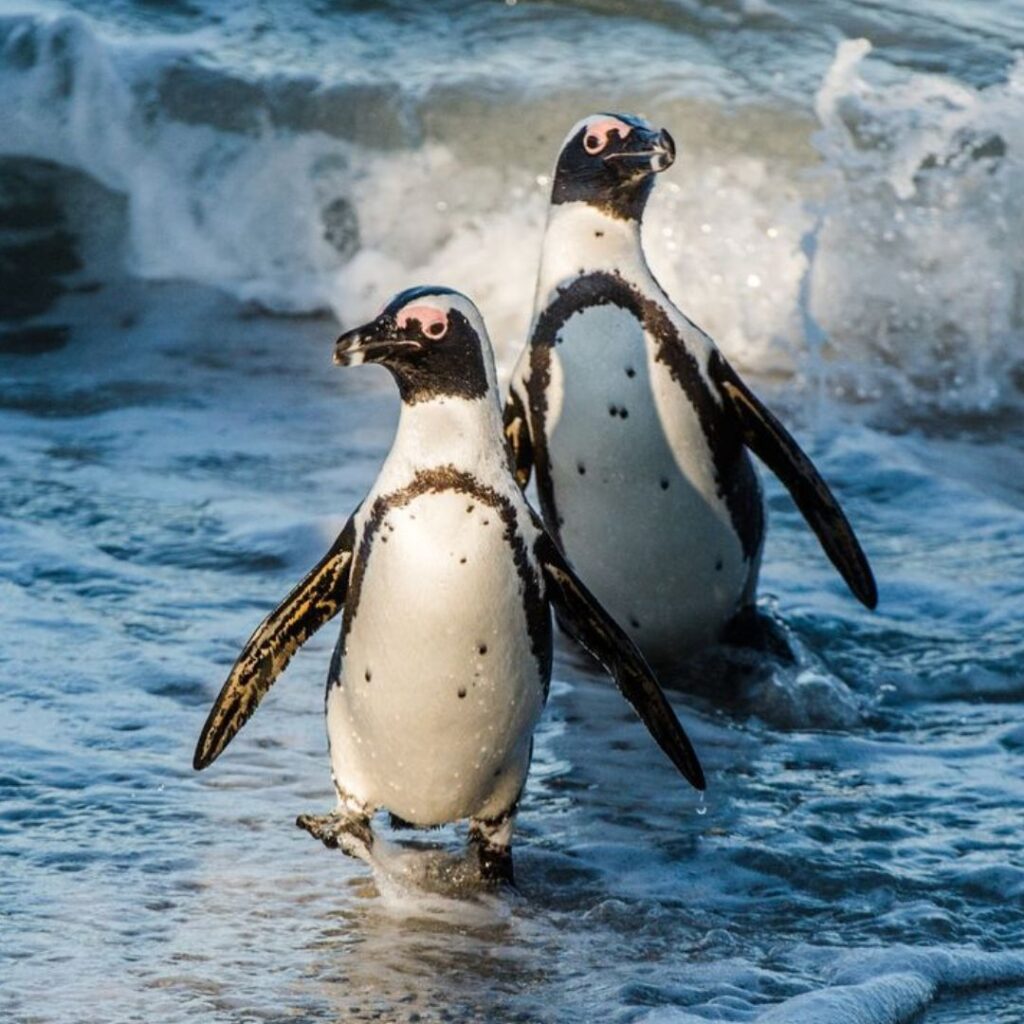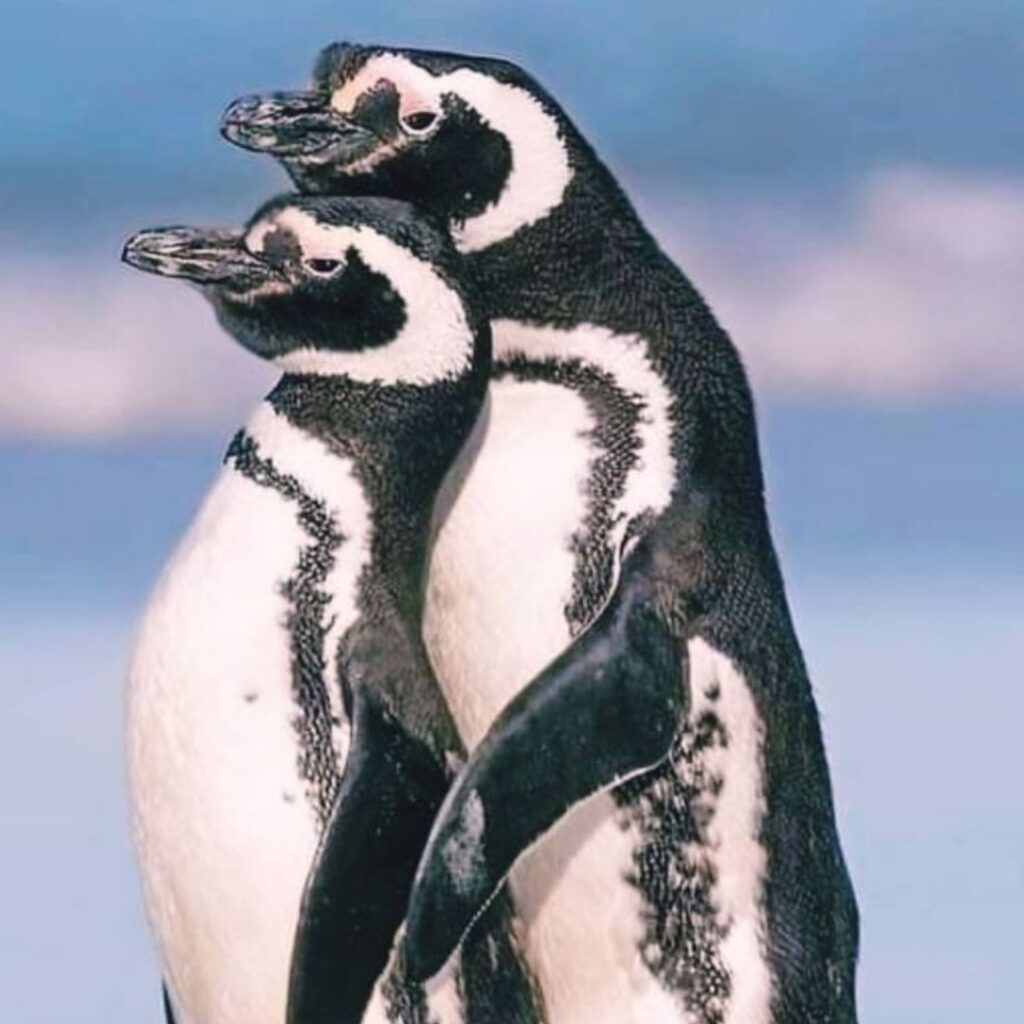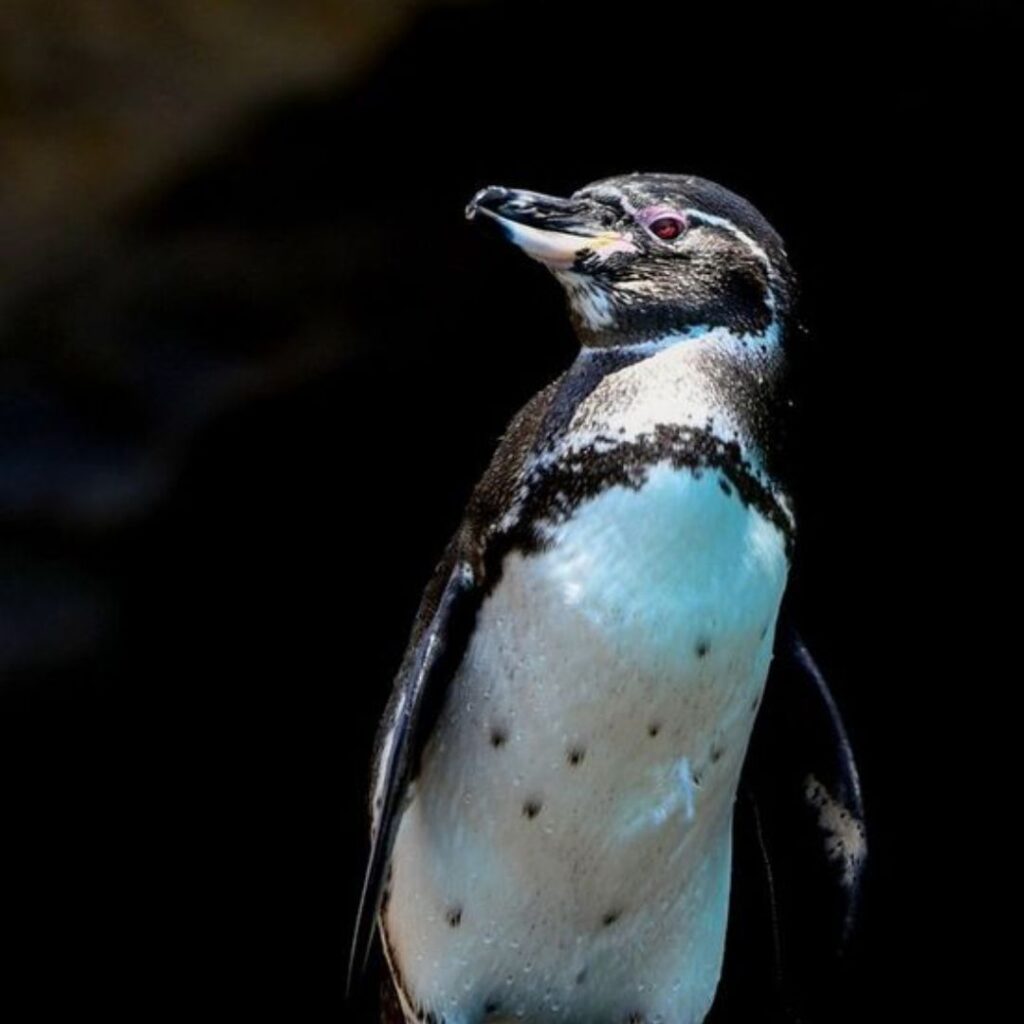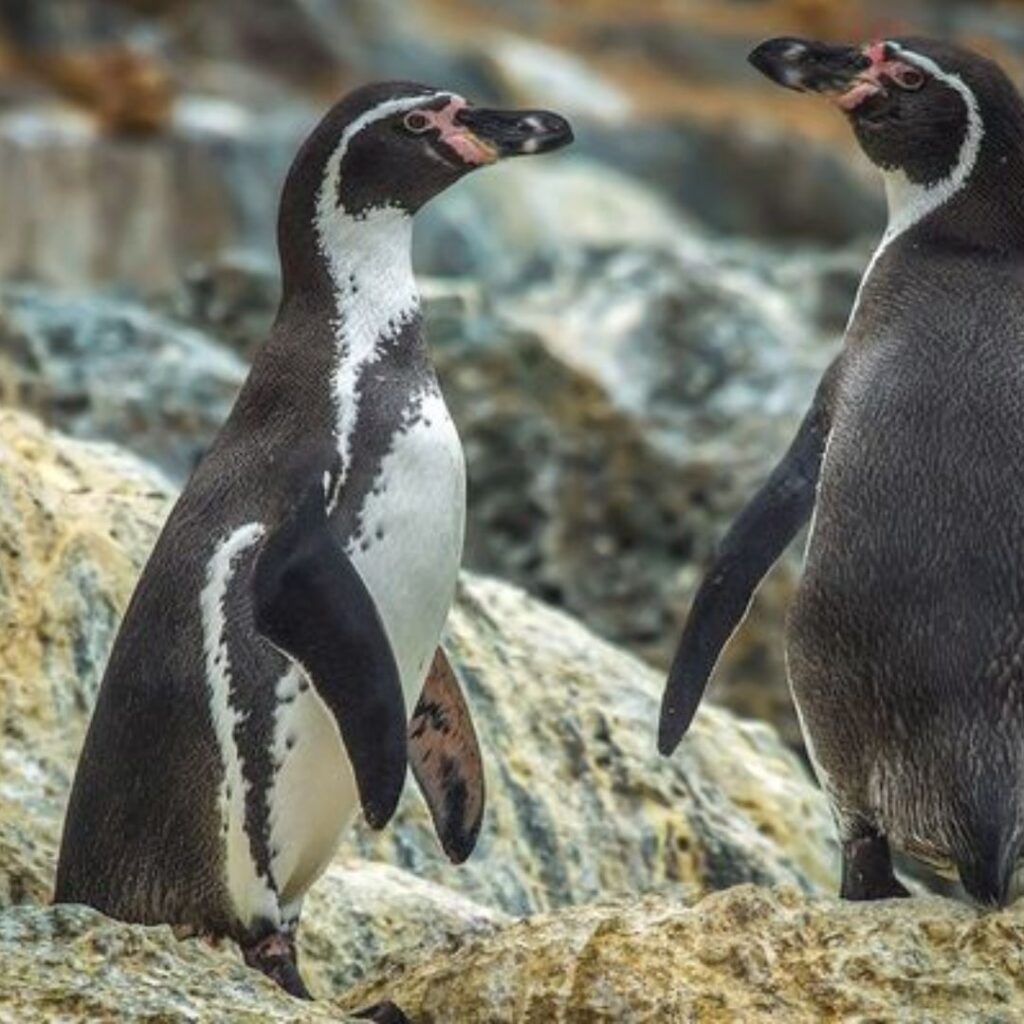
Humboldt penguins face a growing threat of extinction. These charming birds, native to the coasts of Peru and Chile, struggle to survive in their shrinking habitats. Let’s explore the reasons behind their endangered status and why we should care.
Also Read: What Is the Biggest Threat to Penguins?
Overfishing Depletes Their Food Supply
Humboldt penguins rely heavily on small fish like anchovies and sardines. However, industrial fishing operations remove vast quantities of these fish from the ocean. This leaves penguins with less food, making it harder for them to survive and raise their chicks.
Climate Change Disrupts Their Environment
Rising ocean temperatures alter the penguins’ marine ecosystem. Warmer waters drive away the cold-water fish they depend on for food. El Niño events, which are becoming more frequent and intense due to climate change, further disrupt their feeding patterns.

Habitat Loss Threatens Their Breeding Grounds
Coastal development encroaches on the penguins’ nesting areas. Hotels, houses, and industrial facilities destroy the rocky shores where Humboldt penguins build their nests. This leaves fewer safe places for them to lay eggs and raise their young.
Guano Harvesting Damages Nesting Sites
Historically, humans harvested guano (bird droppings) for fertilizer from Humboldt penguin colonies. This practice destroyed nesting burrows and disturbed breeding birds. While less common today, the long-term impacts still affect penguin populations.
Introduced Predators Pose New Dangers
Non-native animals brought by humans to coastal areas threaten penguin colonies. Rats, cats, and dogs prey on eggs, chicks, and even adult penguins. These introduced predators put additional pressure on already struggling populations.

Oil Spills and Pollution Harm Their Health
Marine pollution, especially oil spills, poses a severe risk to Humboldt penguins. Oil coats their feathers, reducing their ability to stay warm and float. Ingesting pollutants from contaminated fish also harms their health and reproductive success.
Entanglement in Fishing Gear Causes Deaths
Penguins often become entangled in fishing nets and lines. This can lead to injury or drowning. Ghost nets, abandoned fishing gear that drifts in the ocean, continue to trap and kill marine life long after fishers discard them.
Also Read: Galapagos Penguin – Everything You Need to Know
What Can We Do to Help?
Protecting Humboldt penguins requires a multi-faceted approach:

1. Support sustainable fishing practices to preserve their food supply.
2. Reduce carbon emissions to slow climate change impacts.
3. Establish and enforce marine protected areas along their habitat range.
4. Control invasive predators in penguin breeding areas.
5. Clean up coastal pollution and prevent oil spills.
6. Educate local communities about penguin conservation.
By taking action to address these threats, we can help ensure a future for Humboldt penguins. These remarkable birds play a vital role in their marine ecosystems and captivate people worldwide with their charismatic nature. Protecting them benefits not only the penguins but also the health of our oceans and coastal communities.
Pingback: Where Do Humboldt Penguins Live?
Pingback: The Humboldt Penguin: 11 Facts You Won't Believe!